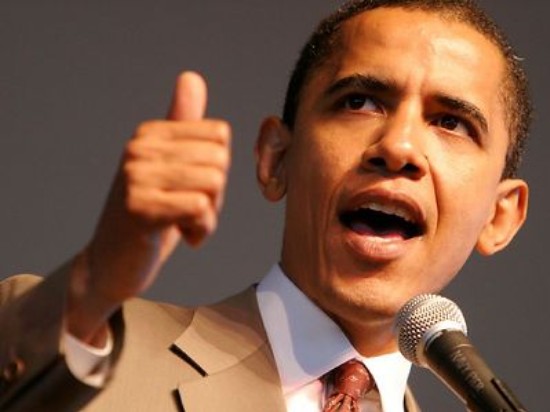A quick explanation for the non-soccer fans: this is a recording of Honduran coverage of the U.S. v. Costa Rica game. When the U.S. scored a very late goal to tie the game, it assured Honduras’ first World Cup berth since 1982.

The recording is wonderful simply because this obviously means so much to them. It stands in contrast to the “professional” objectivity of many American commentators.
The other night I sat in on a new, lively reading group at our university discussing religion and modernity. We picked up Max Weber’s “Science as a Vocation,” as a way into these topics. I read this article in graduate school, but over the past couple of days I have found myself thinking more and more about this puzzling little piece. One passage in particular made me think about the Nobel Peace Prize going to Obama yesterday. Weber states that in an increasingly rationalized society there is a “disenchantment of the world,” as “the ultimate and most sublime values have retreated from public life either into the transcendental realm of mystic life or into the brotherliness of direct and personal human relations.”
It would appear that the Nobel committee at least partially picked Obama for his renewed faith in public discourse to bring about peace and change in the world. Tim Rutten argues in the Los Angeles Times that the award was rightly given to the President for “words” rather than “deeds.” I would further argue the prize most appropriately went to Obama for finding a midway through Weber’s predicament in the above passage. Obama’s rhetoric has sought to enchant the political realm through sublime values that no human being can live without—for example, through the trope of “hope”. At the same time, these are values that are grounded in direct and personal human relations, or in abductive intersubjectivity rather than deductive, non-contextual assertion. There is much to critique in Obama’s administration, but it has at least evidenced an empirical concern for active listening and diplomacy as consequential in politics.
In one of his speeches, Obama espouses a faith in public discourse: “Don’t tell me words don’t matter. ‘I have a dream.’ Just words? ‘We hold these truths to be self-evident, that all men are created equal.’ Just words? ‘We have nothing to fear but fear its self’—just words? Just speeches?” At a minimum, Obama’s prior speech-actions have performed a role to which all those who love peace can aspire—enchanting the world with sublime but accountable words – Don Waisanen

I was up in the wee hours when I saw the BBC announce that Obama won the Nobel Peace Prize. I recall reading years ago that the process is not necessarily a rigorous screening, in that the decision can be guided by a select few. I wondered if this was perceived as a contrast effect, with Barack being perceived as an internationalist, despite being in the office for a very short period of time when the nomination was submitted. A friend of mine put on my Facebook wall a link to this article were Polish Solidarity leader Lech Wałęsa echoed the sentiments of many…too fast.
Malcolm Gladwell had this Tweet::
“Question: Is the goal of the Nobel Peace Prize committee to reward progress of an individual or to encourage the progress of society?”
If we think about progress in peace, what would that look like? What should be the next steps, globally, for the Obama administration? It’s tough given the state of the economy, as the electorate is less interested in peace and more interested in jobs and the healthcare issue. So, will this be a headache for him as the US decides what to do in Afghanistan? Is there pressure for him to act in a certain way? At the end of the day, it’s the US electorate that matters. It might spur some thinking about creative solutions for situations like Afghanistan where peacekeeping is an oxymoron no matter the deployment of resources. It might also accelerate some housecleaning of US detention policies of foreign suspects. Like the Nobel Peace Prize committee and the world, we shall see.
Twitterversion:: Obama wins #Nobel Peace Prize, but what does it represent? What r next steps,globally? Natl security polcy? #ThickCulture http://url.ie/2mcp @Prof_K

No Invitation to APSA for You Buddy!!!!
I’m often critical of my own discipline, but that’s ok because it’s cosa nostra! Fellow Political Science bloggers at The Monkey Cage are rightly peeved (and here) over an amendment offered by Oklahoma Senator Tom Coburn to prohibit NSF funding for Political Science research. Here’s Coburn gettin’ all Thomas Kuhn on us:
NSF spent $91.3 million over the last 10 years on political “science.” This amount could have been directed towards the study of biology, chemistry, geology, and physics. These are real fields of science in which new discoveries can yield real improvements in the lives of everyone.
Ouch! If I didn’t know any better, I’d think Coburn was a levying a reasoned critique against a behavioralist approach to the study of social and political phenomena that perhaps tries to mirror the natural sciences too closely. It’s like he read David Easton’s 1969 address at the American Political Science Association where he calls on political scientists to ask more relevant questions and create a “new behavioral revolution” in political science. Maybe Coburn is a devotee of Bent Flyvbjerg and his book Making Social Science Matter where the Dutch Planner calls for a more phronetic rather than epistemological approach to social research. Maybe he’s read the vast literature on action research.… ok, back to reality. Here’s his big case.:
(political scientists) may have some interesting theories about recent elections, but Americans who have an interest in electoral politics can turn to CNN, FOX News, MSNBC, the print media, and a seemingly endless number of political commentators on the internet who pour over this data and provide a myriad of viewpoints to answer the same questions.
Wow! Say what you want about behavioralists, but Gary King is not John King standing in front of an interactive map. There is a place for advancing general knowledge about why people act the way they do with regard to politics. This last paragraph shows a disdain for voters. “Americans who have an interest in electoral politics”? Am I pollyanna or shouldn’t that be everyone?
Man, we Poly Sci types gotta’ get the word out! I’m glad I don’t teach at Oklahoma State!!!!
 The high school I went to was John F. Kennedy, where the mascot was a leprechaun and the nickname for the sports teams was the Fighting Irish. The “branding” and the fight song were all University of Notre Dame ripoffs. I also seem to recall some Boston Celtics influence on the logo front. I never thought about it being offensive.
The high school I went to was John F. Kennedy, where the mascot was a leprechaun and the nickname for the sports teams was the Fighting Irish. The “branding” and the fight song were all University of Notre Dame ripoffs. I also seem to recall some Boston Celtics influence on the logo front. I never thought about it being offensive.
Fast forward a few years when in my consumer behaviour course {text was by William Wilkie}, I read about the policy implications of sports marketing, particularly when it came to using Native American tribes as mascots. This week, the decision of whether the current nickname for the University of North Dakota will continue to be The Fighting Sioux was extended for 30-60 days by the North Dakota state Board of Higher Education. This will allow the university to get the opinion of the the state’s two tribes, as per the NCAA mandate that says that they cannot hold postseason events without approval of the tribes, after deeming the nickname “hostile and offensive.”
Proponents say the name honors the tribes and are an important part of the school’s tradition. On ESPN, a university official did everything possible to state the university position is whatever the tribes and the Board of Higher Education decides, while an activist stated that all tribes in all states where Sioux people reside should have a say.
 The Stanford {Leland Stanford Jr. University} nickname was the Indians until 1972, when, after protest, it was changed to the Cardinal, for the colour, not the bird. The mascot went from Prince Lightfoot to the Stanford Tree, but not overnight. The tree was a mascot candidate offered by the Stanford band in 1975, although it did not win a student referendum that allowed suggestions that year. According to Wikipedia::
The Stanford {Leland Stanford Jr. University} nickname was the Indians until 1972, when, after protest, it was changed to the Cardinal, for the colour, not the bird. The mascot went from Prince Lightfoot to the Stanford Tree, but not overnight. The tree was a mascot candidate offered by the Stanford band in 1975, although it did not win a student referendum that allowed suggestions that year. According to Wikipedia::
“The 1975 vote included new suggestions, many alluding to the industry of the school’s founder, railroad tycoon Leland Stanford — the Robber Barons, the Sequoias, the Trees, the Cardinals, the Railroaders, the Spikes, and the Huns. The Robber Barons won, but the university’s administration refused to implement the vote.”

Ah, so much for campus democracy. This reminds me of the server of my first web URL at UC Irvine:: “avarice.gsm.uci.edu”

I guess I’m not a stickler for tradition. I’ve gone to schools where the nicknames were Ducks and Anteaters. {As an aside, I do believe the Stanford “tree” is still banned from Autzen Stadium at the University of Oregon for a spotted owl skit in the 1990s. Oregon was/is logging country.} If the mascots were changed, so be it. I must admit I would think it was pretty funny if Stanford did become the Robber Barons. That said, changing a nickname or a mascot on the basis that it offends a group doesn’t bother me at all. I can see how this is a clash of meaning systems.
So, is this no big whoop or is the NCAA imposing an overly politically correct culture on collegiate America?
Twitterversion:: Univ.N.Dakota Fightng Sioux mascot mght go the way of the dodo.Ovrly PC #NCAA or are times just a changin’? #ThickCulture http://url.ie/2k0e @Prof_K
 The Sightline Institute has reports and maps on sustainable regional development. They have a Cascadia Scorecard that tracks cities along seven key dimensions:: health, economy, population, energy, sprawl, wildlife, and pollution.
The Sightline Institute has reports and maps on sustainable regional development. They have a Cascadia Scorecard that tracks cities along seven key dimensions:: health, economy, population, energy, sprawl, wildlife, and pollution.
“The Scorecard’s target measurement for sprawl is 64 percent of a metropolitan area’s urban and suburban residents living in transit-friendly, walkable neighborhoods. That was the average for Vancouver, BC, Canada as of 2001 — the most recent data that was available when the Cascadia Scorecard was launched in 2004. Vancouver has the best smart-growth record among Cascadian cities. In fact, it has the most compact urban structure of any of the 19 cities Sightline has analyzed to date.”

Here is a summary of research on British Columbia. I was in Vancouver, BC this past May and I can attest to the fact that it is a very walkable city. One of the things I look at in cities is how geography shapes growth, such as mountains and bodies of water. Steep mountains, Burrard Inlet, and the Fraser River have all played a role in resisting the pressure for widespread sprawl. In the lower mainland area of British Columbia, where Vancouver is, policies are in place to protect farmland and to channel development.
Twitterversion:: @Sightline Institute has great resources for understanding sustainable develment w/studies of #Cascadia. http://url.ie/2jde #ThickCulture @Prof_K
Song:: Atmosphere – Pink Mountaintops {Vancouver, BC, CA}
See update below on LA District Attorney, Steve Cooley-30 September 2009 11:25 PDT.
First off, my opinion is that director Roman Polanski is guilty of rape, a rape that took place in 1977. A few days ago, he was arrested in Switzerland, after police there were tipped off by US authorities. Here’s an overview::
Over on the Salon.com broadsheet, Kate Harding wants us all to remember that Roman Polanski raped a child. I often take issue with Salon, as several times in the past they have used gender as a wedge issue, intentionally framing things so as to stir controversy. In this case, Harding wants the Polanski case reduced to one note:: child rapist. While this may strengthen the emotional impact of her argument, it negates and dilutes the complexity of the situation and how others involved need to be held accountable for their actions that have led us to this point.
Those wanting the lurid details can easily find them online thanks to the prosecution, so I won’t go over those here. I will state what Polanski was initially charged with back in 1977::
“rape by use of drugs, perversion, sodomy, lewd and lascivious act upon a child under 14, and furnishing a controlled substance (methaqualone) to a minor.”
The prosecution, stating they wanted to spare the the girl the trauma of having to go through a trial, offered a plea bargain, where Polanski copped to the charge of ::
“engaging in unlawful sexual intercourse with a minor.”
So, why did he flee the country and avoid extradition back to the US for over 30 years?
Allegedly, word got out that the media hungry judge, Laurence J. Rittenband, the “judge to the stars,” was getting a sense that the public would be outraged by this plea deal and was set to throw the book at Polanski. Polanski fled. This judge later went on record stating that he would stay on the bench until Polanski was returned. That didn’t happen. He retired from the bench in 1989 and died of cancer in 1993. When he retired, he quoted Gilbert and Sullivan stating, “I got him [Polanski] on my list.” {Don’t get me started on crank judges quoting showtunes and Shakespeare.} Now, echoing those statements, Los Angeles County District Attorney Steve Cooley wants justice to be done::
“He received a very, very, very lenient sentence back then, which would never be achievable under today’s laws, and we’ll see what the court wants to do in terms of the sentence and the parameters within the case settlement they had back then.”
First off, one has to be suspect of the political motives for a DA to go after such a high-profile figure, which is reminiscent of the book/film, Bonfire of the Vanities. It seems odd to suddenly be going after a 75 year old fugitive from justice.
Update:: I have found out that Steve Cooley is on his third term as District Attorney. He will likely be seeking another term in 2012, after successfully blocking a referendum instituting term limits for the office. – more background
I think there are more dangerous criminals who, I’m just throwing this out there, are in the LA area that pose a greater threat. So, I find this to be a curious “triaging” of pressing cases by Cooley. Moreover, Cooley has allowed lurid details to get out and the victim herself just wants the matter dropped ::
“[The District Attorney] has, yet one more time, given great publicity to the lurid details of those events for all to read again…True as they may be, the continued publication of those details causes harm to me, my beloved husband, my three children and my mother…I have become a victim of the actions of the district attorney.”
She received a civil settlement from him and just wants to go on with her life.
Harding in Salon will have none of that::
“Shouldn’t we be honoring her wishes above all else?
In a word, no. At least, not entirely. I happen to believe we should honor her desire not to be the subject of a media circus, which is why I haven’t named her here, even though she chose to make her identity public long ago. But as for dropping the charges, Fecke [a blogger] said it quite well: ‘I understand the victim’s feelings on this. And I sympathize, I do. But for good or ill, the justice system doesn’t work on behalf of victims; it works on behalf of justice.'”
Really. In the same article she reminds us::
“Regardless of whatever legal misconduct might have gone on during his trial, the man admitted to unlawful sex with a minor.”
So, legal misconduct doesn’t factor into justice. This isn’t a cafeteria where one can choose aspects of the case to embrace or ignore and legal misconduct sure factors into the appeal process. So, those hoping for a Polanski extradition should be cautious of what they wish for. It begs the question, is this really about justice or is it about vengeance and retribution? What precisely is the difference in a sociocultural sense of US values? How does this relate to the feminism{s} of today?
I’m far from a Polanski apologist, but I do care about how the system of jurisprudence operates. I dislike the reduction of complexity to catchy and emotion-stirring soundbites and I think its irresponsible and short-sighted. I’m not for glossing over his crimes, but how about holding the judge and prosecution responsible for letting things get to this point and treading cautiously given the implications of stirring up a flawed case, despite slam-dunk evidence. Let’s think about what was proper and improper outside of the bedroom, but in the courtroom.
Twitterversion:: #RomanPolanski faces extradition to US for sentencing of 1977 rape, but what are the stakes for due process? @Prof_K
An 11-year-old English schoolboy recently returned to school after summer holiday as a 12-year-old schoolgirl. Unable to undergo surgery or horomone therapy until age 18, his parents instead changed his name and dressed him in a dress and pigtails. The child’s classmates were reportedly “confused and tearful,” and the teachers held an emergency assembly in which they told the entire school to henceforth treat the child as a girl. Parents were most upset (at least, publicly) at the fact that this gender bomb was dropped on them without warning and some lead-in time to discuss the issue with their own children.
I had just started thinking over the implications of that incident when it apparently happened again – this time, with a 9-year-old child (some parents just won’t be outdone). This is one of those rare cases (ha!) where I don’t know exactly where my opinion lies before I begin writing. On the one hand, I am of the belief that gender identity is not a choice, and would support my son or daughter if they came to realize they identified with the dystonic gender. On the other hand, this is a pretty adult decision for a child to be making, and without knowing the family personally, I begin to wonder how much of this is a hurting and adamant child and how much is the parent (speaking of hurting children, both gender-switched youths are now apparently now suffering from – prepare to be unsurprised – being horrendously bullied and jeered at).
While overeducated louts such as myself wander around ruminating ponderously over the issue as though it were complex or something, less tentative folks have already started chiming in on the message boards:
“Our society is sick to allow this to happen. I suppose we can’t say anything for fear of not being ‘politically correct’. ”
“There are proably very few experts in this field when it comes to children i just hope the very best were available not some local pc correct psuedo experts.”
Nitpicky English language-related errors aside, I note the citation of political correctness as the reason why no one is apparently in an uproar over the actual gender-changing portion of our story (remember, parents were ostensibly upset because they weren’t given sufficient time to discuss it with their kids)… what do you think?
Is twelve old enough to know that you would rather be a woman for the rest of your life than a man? (my personal answer, is yeah, probably. But this might be the least controversial part of this).
Is nine old enough?
What would you do if it were YOUR child?
In what way do you think the second incident might be related to the first? (it might be similar to the way rape victims sometimes come forward in pairs – the first paves the way for the second, comfort-wise. My colleague sees it more like a spreading virus).
Did these parents handle the situation poorly by not giving the rest of the school enough time to work out the complexities of the issue with their children?
As a psychologist, I realize I’m supposed to have some deep insights into this topic rather than more questions. But firstly, I’m not that kind of psychologist. And anyway, I’m not always (or ever, for that matter) particularly insightful. With issues like this, I’m almost mistrustful of anyone who shows up with all the right answers immediately. But don’t let me deter you if you’ve got ’em!
Check out this effort called Parking day NYC by artists and activists to create bite-sized, modular patches of public space. I wonder how these types of efforts might work in suburban communities?
New Yorkers to Create PreFab Parks for Park(ing) Day. via WorldChanging.com
Here are some startling figures on the world’s water supply:
When it comes to global water issues, the numbers are not pretty: 2.5 billion people (that’s nearly half the world’s population) live without safe sanitation. About 1 billion still defecate in the open, and that same number do not have access to safe drinking water.
Don’t Love That Dirty Water.via Good Magazine.
